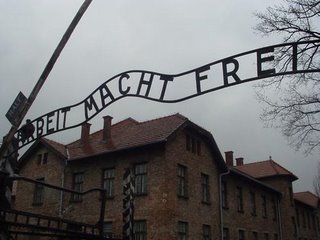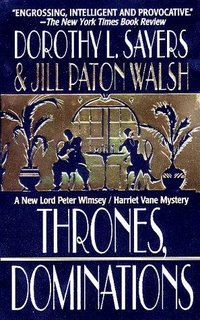 I just finished reading William Stevenson’s A Man Called Intrepid. Published originally in 1976, this is a gripping account of the World War II service of British spy-master William Stephenson. (In spite of the similarity of their names, the two men are not related.) The Allies clearly out-spied the Germans during the war, and this was in no small part due to Stephenson, whose code name was “Intrepid.” (The Soviets may well have out-spied their own Allies, but that is another story.)
I just finished reading William Stevenson’s A Man Called Intrepid. Published originally in 1976, this is a gripping account of the World War II service of British spy-master William Stephenson. (In spite of the similarity of their names, the two men are not related.) The Allies clearly out-spied the Germans during the war, and this was in no small part due to Stephenson, whose code name was “Intrepid.” (The Soviets may well have out-spied their own Allies, but that is another story.)There are a couple of passages which particularly caught my attention, both from Intrepid himself. First, on the necessity of spying:
The weapons of secrecy have no place in an ideal world. But we live in a world of undeclared hostilities in which such weapons are constantly used against us and could, unless countered, leave us unprepared again, this time for an onslaught of magnitude that staggers the imagination. And while it may seem unnecessary to stress so obvious a point, the weapons of secrecy are rendered ineffective if we remove the secrecy. One of the conditions of democracy is freedom of information. It would be infinitely preferable to know exactly how our intelligence agencies function, and why, and where. But this information, once made public, disarms us. (p. xv)
Stephenson made this argument during the Cold War, when the threat of nuclear war seemed ever present — hence the reference to “an onslaught of magnitude that staggers the imagination.” But the end of the Cold War — (it did end, didn’t it?) — has not brought an end to the threat of terrible onslaught, as the events of September 11, 2001 made so very clear. In some ways, the threat is worse. The beautiful thing about the Soviets was that they did not want to die, and thus could be blackmailed into peace. But Islamic terrorists desire death, and want to take you with them.
Not all Muslims are terrorists, of course; but a distressing number are, and it does not take many to cause great evil. (Nineteen, I think, was the number.) There are too many today who want to pretend that there is no threat, that claims to the contrary were merely a pretense by an evangelical president to settle old political scores and spy on his own people. Another passage from Intrepid is, I think, applicable to this sort of nonsense:
The easy way out is to pretend there are no crises. That’s the way to win elections. That’s the way we stumbled into war in the first place — there were too many men in power who preferred to see no threat to freedom because to admit to such a threat implies a willingness to accept sacrifice to combat it. There’s a considerable difference between being high-minded and soft-headed. (p. 466)For all of its political appeal, we cannot afford soft-headedness in the Long War we find ourselves now in.



















